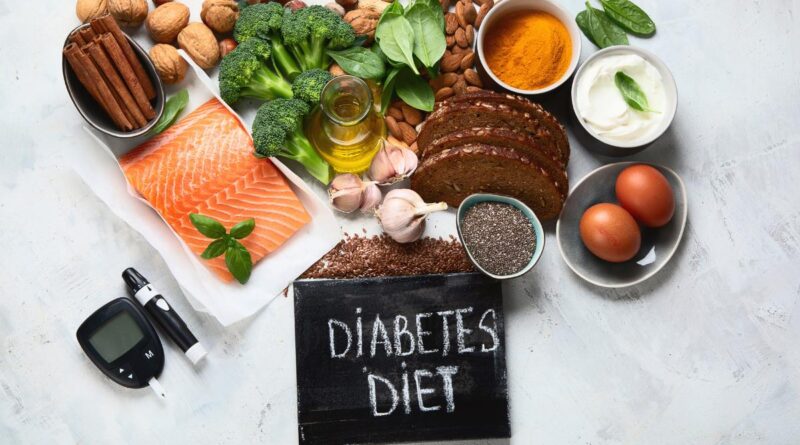Pre-Diabetes: 13 Foods You Should Consider
Introduction
Adequate nutrition has been the tool for many people to face unfavorable health conditions, such as diabetes, pre-diabetes and high blood pressure. Controlling blood sugar levels is often only possible with medications recommended by your doctor, but there is a consensus that adequate nutrition can be your main ally in maintaining your health.
The key is adopting simple yet effective food swaps, which we’ll explore in detail in this enlightening video.
Disclaimer: Information provided is for educational purposes only and is not a substitute for medical advice. You should never replace your doctor’s advice with any alternative treatment.
The Wake-Up Call: Pre-Diabetes Diagnosis
Receiving a prediabetes diagnosis coupled with the daunting prospect of dietary and lifestyle changes can be overwhelming. However, there is good news: reducing blood sugar levels through dietary interventions is not as challenging as it may seem. It requires the right knowledge and a consistent commitment to positive habits.
Unveiling the Top Foods for Pre-Diabetes
Here we will reveal some of the best foods for prediabetes. Foods that you can consider your allies on this new journey.
Criteria for Optimal Food Choices
When selecting foods to combat prediabetes and prevent type 2 diabetes, three essential criteria must be met:
1. No added sugar or artificial sweeteners
2. No refined carbohydrates
3. Whole Foods Low in Net Carbs
1. No Added Sugar or Artificial Sweeteners
Added sugar, the nemesis of health, hides in various guises, contributing to high blood sugar and insulin responses. Over 60 names disguise added sugar on labels. Scrutinizing both “added sugar” and “ingredients” on labels is imperative.
Example: Cheerios Analysis
Cheerios, often marketed as a cholesterol-lowering option, undergo scrutiny. A single serving, despite claims, reveals 17 grams of net carbs, primarily starch and sugar. Ingredients list whole grain oats, corn starch, and sugar—a trifecta signaling a less-than-ideal breakfast choice for pre-diabetics.
2. No Refined Carbohydrates
Refined carbohydrates, stripped of fiber, fat, and protein, leaving behind pure glucose, wreak havoc on blood sugar levels. Reading labels and calculating net carbs (total carbs minus fiber) unveils the true impact. Foods like bread, pasta, and pastries, abundant in refined carbs, should be approached with caution.
3. Whole Foods with Low Net Carbs
Whole foods, rich in protein, fat, and fiber, form the cornerstone of a blood sugar-friendly diet. Identifying foods low in net carbs ensures a minimal impact on blood sugar levels.
Example: Nutrient-Rich Foods
Now, let’s explore some nutrient-rich foods that align with the outlined criteria.
Nutrient-Rich Heroes: Foods for Pre-Diabetes
Embarking on a journey of health-promoting foods.
1. Avocado
- Half an avocado:
- 1 gram of net carbs
- 5 grams of fiber
- 10 grams of healthy fat
- Minimal protein
- Approximately 114 calories
Avocado’s versatility enhances various dishes, and freezing ripe portions can elevate smoothies’ texture without added sugar.
2. Almonds
- One-quarter cup of almonds:
- 3 grams of net carbs
- 4 grams of fiber
- 18 grams of healthy fat
- 7 grams of protein
- Around 206 calories
A convenient and satisfying snack, almonds contribute essential nutrients without spiking blood sugar.
3. Walnuts
- One-quarter cup of walnuts:
- 2 grams of net carbs
- 2 grams of fiber
- 19 grams of healthy fat
- 4 grams of protein
- Approximately 191 calories
Walnuts, with their rich nutritional profile, make a valuable addition to your pre-diabetes-friendly repertoire.
4. Berries: Blackberries and Raspberries
One cup of fresh blackberries:
- 6 grams of net carbs
- 8 grams of fiber
- Negligible fat and protein
- Approximately 62 calories
One cup of fresh raspberries:
- 7 grams of net carbs
- 8 grams of fiber
- Minimal fat and protein
- About 64 calories
Among berries, blackberries and raspberries emerge as top choices for their low sugar content and high fiber.
5. Hemp Hearts (Hemp Seeds)
- Three tablespoons of hemp hearts:
- No net carbs
- 1 gram of fiber
- 15 grams of healthy fat
- 10 grams of protein
- Around 180 calories
Dispelling misconceptions, hemp hearts contribute to a nutrient-dense diet without inducing a “high.”
6. Chia Seeds
- Three tablespoons of chia seeds:
- 2 grams of net carbs
- 10 grams of fiber
- 9 grams of healthy fat
- 5 grams of protein
- Approximately 146 calories
Chia seeds, with their unique nutritional profile, enhance smoothies and offer a substantial fiber boost.
7. Edamame
- Half a cup of edamame:
- 3 grams of net carbs
- 5 grams of fiber
- 5 grams of healthy fat
- 10 grams of protein
- About 120 calories
A quick and nutritious addition to meals, steamed edamame complements a variety of dishes.
8. Non-Starchy Vegetables
Non-starchy vegetables, rich in water, fiber, and micronutrients, contribute to overall health. Include options like lettuce, spinach, bell peppers, and zucchini for a nutrient-packed diet.
Protein Powerhouses: Animal Products for Pre-Diabetes
Diving into sources of concentrated protein for blood sugar control.
9. Salmon
- Six ounces of salmon:
- No carbs
- 21 grams of healthy, anti-inflammatory fat
- 38 grams of protein
- Approximately 350 calories
Salmon, with its omega-3 fatty acids, provides a delicious and nutritious option for maintaining optimal blood sugar levels.
10. Chicken
- Six ounces of chicken breast:
- No carbs
- 8 grams of fat
- 53 grams of protein
- Approximately 294 calories
Chicken, a versatile protein source, retains its flavor well and is ideal for meal prepping.
11. Beef
- Six ounces of sirloin:
- No carbs
- 26 grams of fat
- 45 grams of protein
- Approximately 425 calories
While personal preferences vary, beef stands as a substantial protein source with favorable macronutrient ratios.
12. Eggs
- Three eggs:
- Two net carbs
- No fiber
- 16 grams of fat
- 19 grams of protein
- Approximately 223 calories
Eggs, a versatile and cost-effective protein option, can be incorporated into various meals.
13. Cottage Cheese
- Half a cup of cottage cheese:
- 4 grams of net carbs
- No fiber
- 5 grams of fat
- 12 grams of protein
- Around 100 calories
Cottage cheese, when paired with complementary ingredients, offers a protein-rich snack or meal component.
Conclusion: Crafting a Balanced Approach to Pre-Diabetes Nutrition
Empowering individuals with knowledge for effective blood sugar management.
Key Takeaways
- Strategic food choices play a pivotal role in managing pre-diabetes.
- Avoid added sugar, artificial sweeteners, and refined carbohydrates.
- Prioritize whole foods with low net carbs to minimize blood sugar impact.
- Incorporate nutrient-dense options like avocados, nuts, berries, and lean proteins.
- Tailor your approach to suit personal preferences and health goals.
Empower Yourself
Understanding the impact of food on blood sugar levels is the first step toward achieving lasting health. While this guide provides valuable insights, it is not a substitute for personalized medical advice. Always consult with your healthcare professional for tailored guidance.
Remember, your health is an ongoing pursuit, and informed choices today shape a vibrant tomorrow.














